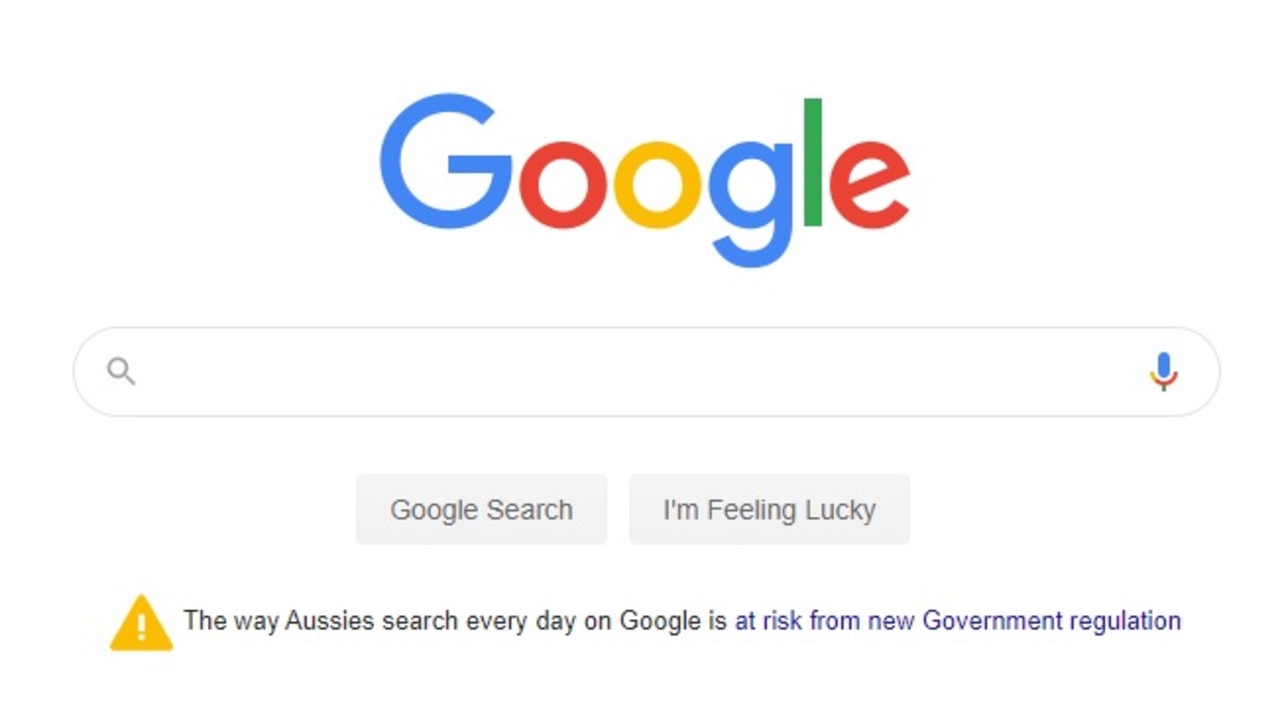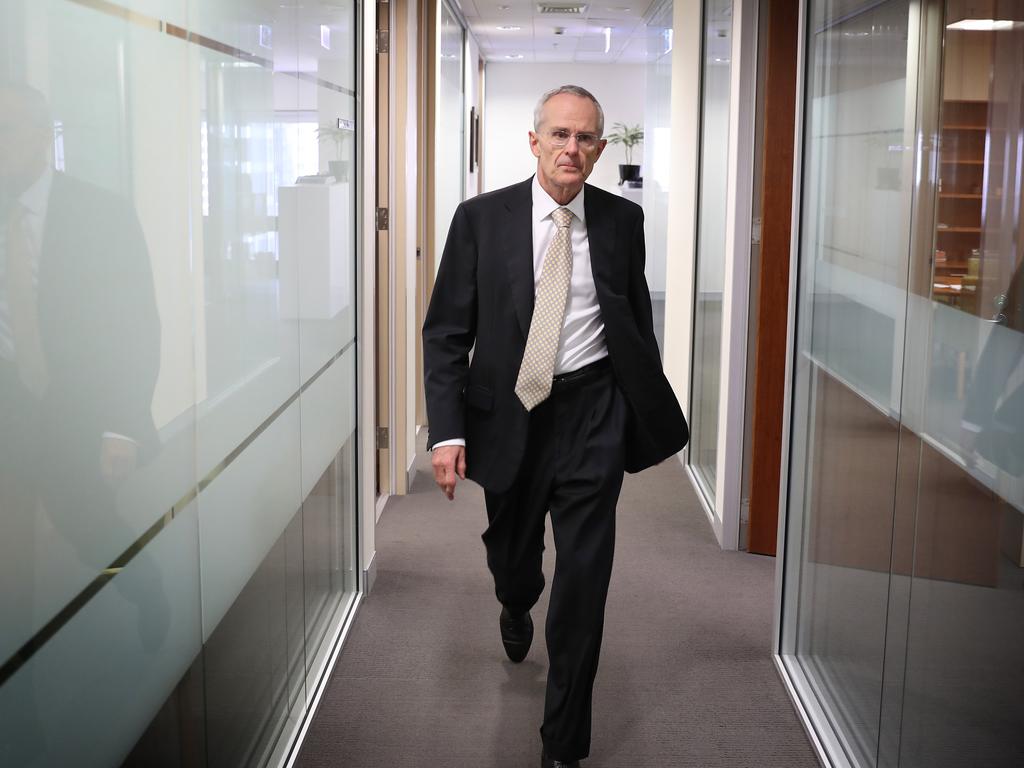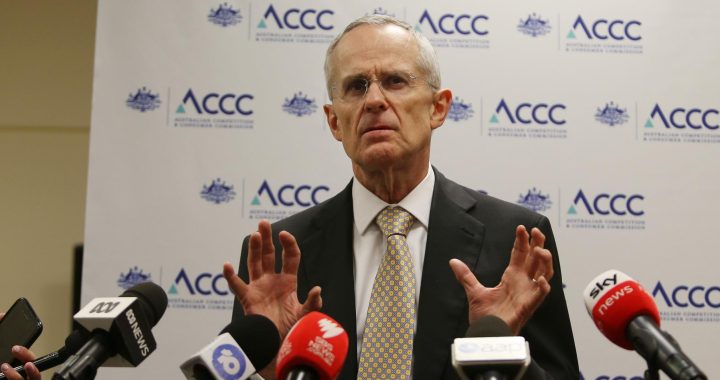The $US1 trillion valued Google is playing hardball with Australian media over demands it pays to use their content.
The Australian Competition and Consumer Commission (ACCC) has released a draft mandatory code that lets Australian media bargain with Google and fellow tech giant Facebook to secure fair payment for news content.
Comments on the code close on Friday and then its game-on. Either Google reaches agreement with Australian news companies or it may take its bat and ball and go home. Based on its behaviour in Spain in 2014 and other parts of Europe recently, there is a strong prospect that Google will walk away from any arrangement and opt not to display news organisations’ content in search. It could decide not to rank their stories or not show story excerpts.
You may think Google has the upper hand in this dispute, that with 90 per cent of the desktop search market and 98.21 per cent of the mobile search market, it can dictate to Australian media.
Experts say Google also has much to lose by walking away, and that there’s a viable plan B for Australian media if it does.
Facebook is saying little yet about the code, however Google is recoiling. It has responded by prominently promoting an open letter by Australia managing director Mel Silva. You can access it from a direct link on its Australian search home page. If you use YouTube, you may have encountered pop-ups warning that Australia’s access to search is at risk.

READ MORE: Google in a pickle if it doesn’t play ball | Secret phone data reveals every move | Google out to keep its free lunch | Google ‘a bully using scare tactics’ | Google attack also an admission
Apart from the money, Google is worried about a requirement to notify news organisations of upcoming changes to its search algorithms; news organisations want warnings of how changes to search will impact their rankings and business.
Ms Silva’s letter warns that Google may have to share its user data with news organisations. The ACCC says that’s untrue. “Google will not be required to share any additional user data with Australian news businesses unless it chooses to do so,” says the ACCC in an open letter in response.
The draft code requires Facebook and Google to bargain with news organisations over three months, and if there’s no agreement, a deal will go to final-offer arbitration. An arbitrator will decide which side offers a fairer deal, and adopt its approach. This forces both sides to be reasonable.
“I can‘t speculate what will happen next, because we don’t really have a precedent for this particular situation,” says Associate Professor Fiona Martin, from the University of Sydney’s Department of Media and Communications,
“However I think the ACCC is right to move to try and get Google to negotiate with new media companies. There‘s a need for regulation to control monopolies.”
She says Google has much to lose from no agreement. She says it enjoys direct value from advertising displayed next to news content, and gleans information from users of news that can improve ad targeting. “I think that platforms are getting more value out of publishing news than news companies are getting out of the platforms.”

Dr Martin says if Google opts out of search in Australia, it would lose its advertising monopoly, with other vendors filling the void on alternative sites that aggregate mainstream news content. It won’t be able to promise advertisers ubiquitous exposure.
She says Australian news organisations could break free of Google if necessary. But they’d need to be “very agile”. One approach is for mainstream media to build news aggregation sites of their own, and heavily promote them.
In January, News Corporation (the ultimate owner of The Australian) launched an early Beta version of a news aggregation site called Knewz that draws news from hundreds of sources both within and outside the corporation.
Stories link directly with original publishers. The content is US focused, but it’s a sample of what is possible.
At the time, The Wall Street Journal reported that the site could potentially give News Corp more leverage in its relationship with Google and other platforms.
“We are exploring this with the goal of recognising and rewarding the provenance of journalism, and to drive traffic and data to publishers — including subscription sites — so their original work is respected,” says James Kennedy, a spokesman for News Corp in the report.
Dr Martin says an alternative aggregated news platform could work if it was developed as an open platform, with wide-ranging participation but with membership restricted to valid news publishers to keep away conspiracy theorists and propaganda publications.
“If there’s a willingness from a lot of interested parties, and if it‘s an open source project, it’s got a better chance of survival.”
She said Google’s scare tactics in its open letter threatening disaster didn’t resonate with Australians. “No one cares, Australians aren’t accessing those messages.
“In the wake of the Facebook Cambridge Analytica debacle, people are rightly concerned about the transparency of Google and Facebook and big platforms.”
As to the message that Google put out about a big media company wanting your data. She says it forgets it’s a big media company itself.
Dr Martin says ACCC chairman Rod Sims has proven to be a very successful regulatory activist and has promoted the importance of the digital platforms inquiry to Australians.

Associate Professor Rob Nicholls from the University of NSW Business School says the ACCC has learned the lessons from Spain in 2014 and from France this year and has given Google “a pretty stark choice”.
“The choice is comply with the mandatory code, which would have been voluntary if you had done the negotiation, or exit.”
Dr Nicholls says Spain directed Google to pay for content and Google simply stopped ranking local media stories in search. However over time readers went back to searching newspaper sites directly.
“People just get used to searching for news on news businesses websites, so they go to the various media platforms in Spain, their own websites rather than use Google for searching news.”
Some surveys report that the Spanish media suffered a loss of patronage after Google stopped ranking its stories, however others say the reports are overblown.
“For years, critics have attempted to make the case for why the EU should not adopt a similar law, arguing that the Spanish law and resulting Google News closure were disastrous for Spanish news publishers, with some publishers experiencing double-digit drops in web traffic,” says The News Media Alliance in a report last year.
“Over the long-term, data showing online website traffic trends for Spanish news sites from 2014 up to 2019 seem to have remained largely unchanged, with the total number of unique monthly visitors actually increasing with many publishers.”
Dr Nicholls says local media sites have benefited from increased traffic. “There’s a lot higher usage of news media businesses websites in Spain than there is in other European countries, because Google doesn‘t search.”
He says France has told Google and Facebook to negotiate with news businesses and if they don’t, they will be “pinged” for misuse of market power.
He too sees big risks for Google if it walked away from a deal in Australia, and says there is scope for an aggregated news service to replace Google searches for mainstream news.
“Specialist search engines gain popularity very rapidly if they’re good. The advertising sales can be higher because you’ve got a demographic that is essentially searching for real information. The value of the advertising from those sites can be higher.”
He says newspapers and other news organisations would have the resources to heavily promote an aggregated news search engine. “The cross promo opportunities are really high.”
He says the possibility that an alternative news aggregation site could work isn’t lost on Google. “The reason that you (Google) lobby hard and perhaps try and get a different demographic to make submissions to the ACCC … is because you recognise that there‘s a threat. Essentially their monopoly is being challenged.”
He says Google would also know that what the ACCC achieves in Australia could impact agreements for payments to news organisations in other countries.
He believes Google could explain the impact of changing algorithms to news organisations without giving all details away about algorithms.
Time is now ticking away for Google on this, with consultation on the draft code closing on Friday.
The government says it will pass legislation promptly, and once it does, it’s game on to reach a deal. The scene is set for a massive showdown on this in coming months, with a likelihood of Google walking away, unless the big tech firm from Mountain View rethinks its position.
Published in The Australian newspaper.
